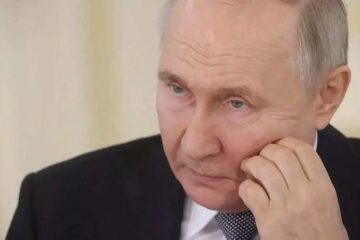Evaluating the Impact of Western Sanctions on Russia’s Economy

The effectiveness of Western sanctions in deterring Russia’s invasion of Ukraine has come under scrutiny, with observations suggesting limited success in significantly hindering Vladimir Putin’s regime. Despite stringent measures targeting key economic sectors, Russia’s wartime economy has displayed resilience, prompting calls for more robust action from Western powers.
Current Status of Sanctions
Over the past two years, Western nations have imposed a range of sanctions and trade restrictions on Russia, including measures targeting energy sectors, asset freezing, and financial disconnections. While these actions have undoubtedly exerted pressure on the Russian economy, recent data indicates a relatively stable economic performance. Despite a minor GDP contraction in 2022, Russia recorded a 3.6% annual growth in 2023, alongside a record-low unemployment rate of 2.9%.
Challenges and Porous Sanctions
Experts note that Western sanctions have been “porous,” allowing Russia to navigate through loopholes and mitigate their impact effectively. Owen Matthews, a Russia expert, highlights the explosion of Nord Stream pipelines in 2022 as a more significant blow to Russia’s economy than Western sanctions. Additionally, the adaptability of Russian firms in evading trade restrictions poses challenges to the efficacy of sanctions.
Potential Strategies for Western Powers
Liam Peach, a senior economist, suggests that Western countries could intensify pressure on Russia by targeting its energy exports through secondary sanctions on third-party purchasers. However, concerns over Russia’s energy dominance and potential volatility in global markets may deter such actions. Alternatively, focusing on non-oil exports, including industrial metals and liquefied natural gas, could offer avenues for exerting economic pressure on Russia.
Future Outlook and Persistence of Sanctions
Despite the limitations of current sanctions, Peach predicts that they will persist in the near future, with GDP growth projected at 3.0%-3.5% and year-end inflation at 5.5%-6.0%. The likelihood of sanctions being rolled back remains low, especially in the event of Russia escalating its military actions. Even in the case of a negotiated settlement, unfreezing Russia’s foreign exchange reserves appears improbable.
In conclusion, while Western sanctions have imposed some economic strain on Russia, their effectiveness in curbing aggression remains uncertain. As geopolitical tensions persist, policymakers must reassess and potentially escalate sanctions to exert greater pressure on Russia and advance diplomatic efforts to resolve the conflict in Ukraine.
















